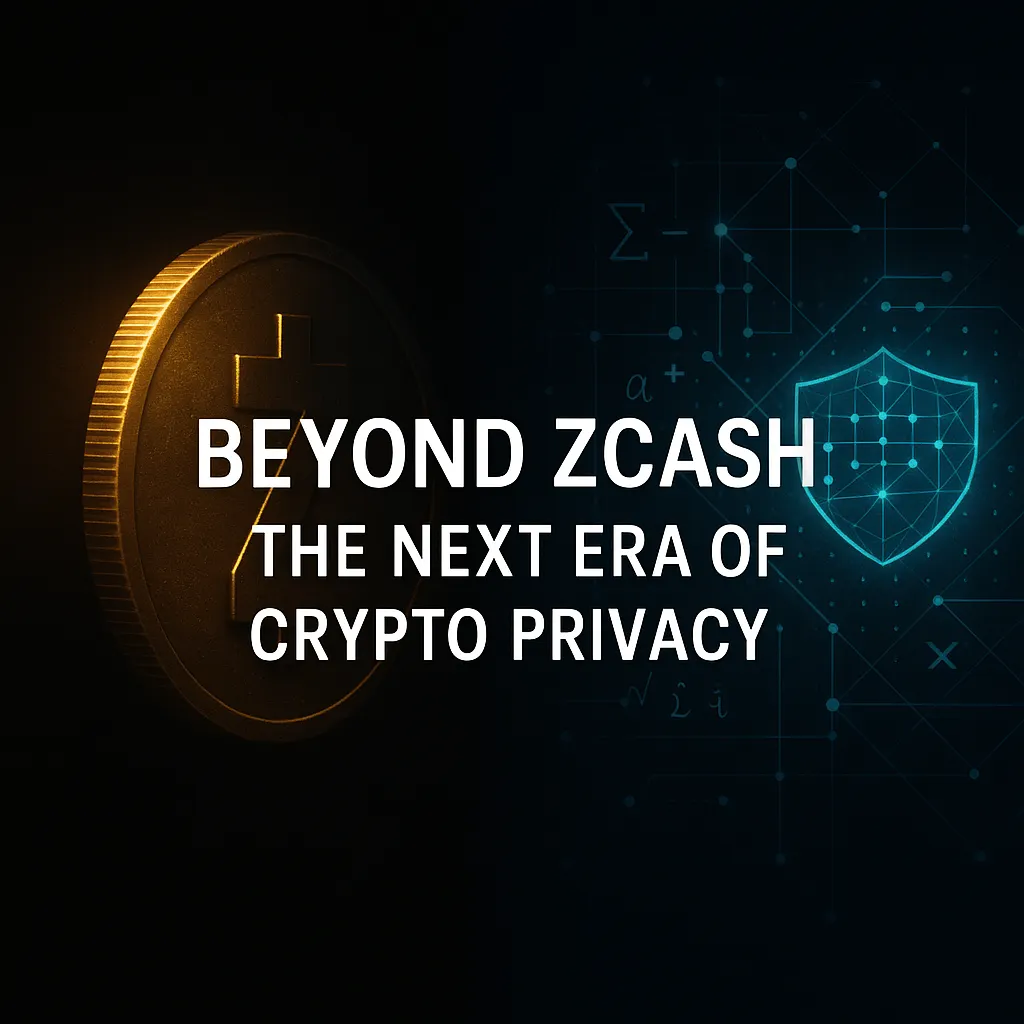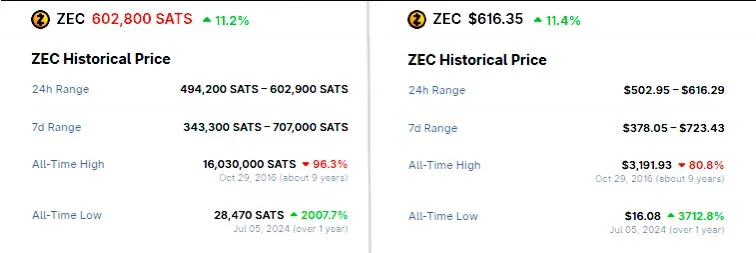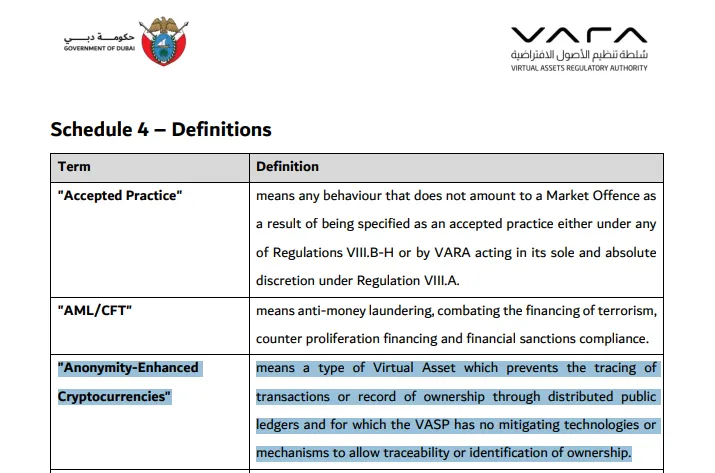
Beyond Zcash: How Zero-Knowledge Projects Redefine Privacy
While Zcash keeps astonishing everyone with its phenomenal rally — already up more than 2,000% from its bottom against Bitcoin (and roughly 3,700% against the dollar) — I found myself wondering: what makes this cryptocurrency so special? What’s driving this frenzy? Why are people willing to buy ZEC at almost any price?

ZEC historical prices. Source — CoinGecko
Today’s excitement around ZEC feels oddly familiar. It reminds me of the very first days after its launch, back on October 29, 2016, when Zcash’s debut sent the price to absurd heights — levels it still hasn’t revisited since.
But in 2016, Zcash really was revolutionary. For the first time, users could choose what kind of transaction to send: a regular, transparent one — like in Bitcoin — or a private one, protected by zero-knowledge proofs, revealing nothing to anyone.
Now, nearly a decade later, Zcash still offers the same thing. But that choice no longer feels groundbreaking. Even conservative Bitcoin has had something similar for years: you can either broadcast a public on-chain transaction — or open a Lightning Network channel, where you can move funds privately, off-chain, and later close it with just one final settlement transaction on the blockchain.
Meanwhile, zero-knowledge proofs (ZKPs) have spread far beyond their original niche. Entire ecosystems now rely on them. The broader Zero-Knowledge sector has also been growing steadily (up 38% against BTC last week), though still nowhere near Zcash’s explosive rally.

List of crypto sectors by market cap growth. Source — CoinGecko
So why is it that today’s advanced ZK-based solutions — more sophisticated and versatile than Zcash — still don’t attract the same attention? Let’s find out.
What’s the Difference Between Zero-Knowledge Projects and Privacy Coins?
Zero-Knowledge Proofs (ZKPs) are methods that allow one to prove a statement is true without revealing any specific information about it. In blockchain terms, it means you can confirm a transaction follows all the rules without publishing its actual contents.
But Zero Knowledge isn’t limited to privacy. Its applications reach far beyond that — and not every project labeled “ZK” is about anonymous payments. For a long time, Zcash was practically the only project using ZK principles specifically to hide transaction details. Most others pursued very different goals.
One of the most famous directions for ZK technology is ZK-rollups — Layer-2 solutions for Ethereum and other blockchains. They allow thousands of transactions to be processed off-chain, and then confirmed on the main chain (Layer-1) with a single short proof that verifies they were all executed correctly.
The goal of these projects isn’t privacy. In Ethereum’s case, the blockchain doesn’t store every detail of a ZK-rollup transaction, but the rollup explorers (like StarkNet or zkSync) display all of them publicly. If you use rabbit.io to swap assets from these rollups, your transaction can always be proven — anyone can check it in the explorer of that particular rollup.
Here, Zero Knowledge is about scalability, not secrecy. These projects use ZK-proofs to ease the blockchain’s workload, reducing congestion and fees — not to conceal financial activity.
Other projects use ZK technology differently. Take Mina Protocol — a lightweight blockchain where the entire chain’s size remains around 22 KB, regardless of how many transactions it contains. Instead of storing the full history, Mina keeps only a persistent ZK-proof of the network’s current state. This solves the problem of blockchain bloat: while syncing with Bitcoin requires downloading hundreds of gigabytes, Mina allows a new user to verify the entire network instantly by checking a tiny proof.
Then there are ZK-based solutions built specifically for privacy, but often not for payments — rather for private interactions with decentralized applications. Aztec, for instance, developed a ZK system that lets developers build dApps whose state remains hidden from the outside world. Transactions are still verifiable, but the details — like who called which functions — are encrypted.
There are also other initiatives giving developers selective privacy tools — letting users decide which data to reveal and which to keep secret. In many of these systems, selective transparency is the rule: users can disclose their data if needed, but by default, everything stays encrypted.
In short, Zero Knowledge is a vast field with many use cases, while privacy coins serve one specific purpose: they’re designed as digital cash focused on transaction anonymity. Their main value lies in being money that leaves no trace. Some of them use ZK-proofs; others rely on different cryptographic tricks.
Put simply:
- A privacy coin is about confidential payments.
- A ZK project is about infrastructure — scaling, efficiency, new functionality — where privacy may be just one optional feature, or not a feature at all.
Zero-Knowledge Projects Focused on Private Transactions
Still, within the broader Zero-Knowledge space, there are projects that do focus on privacy — and many of them have evolved far beyond what Zcash offers today.
Perhaps the most illustrative example is Aztec. It’s designed for advanced privacy scenarios — not just hiding an address or payment amount, but letting users choose which data to keep private across different DeFi interactions. As Aztec puts it, “Every wallet is a smart contract that gives users complete control over which aspects they want to make public or keep private.”
Another key player is Namada, which describes itself as “Your Gateway to the Shielded Multichain.” It’s built to ensure confidential transactions across multiple assets and multiple blockchains, within the Cosmos ecosystem. Namada allows users to hide transaction details for assets originating from different chains — and bridges to Ethereum and Solana are already in development, aiming to bring this privacy layer to those ecosystems as well.
There are also Layer-1 blockchains built around ZK privacy for applications:
- Secret Network — where all smart-contract data is private by default, enabling “encrypted computation” directly on-chain.
- Aleph Zero — where privacy is an optional feature: developers can decide whether their smart contracts should include confidential logic or remain transparent.
Why Don’t Zero-Knowledge Projects Get the Same Attention as Zcash?
So, today’s Zero-Knowledge projects can offer far more advanced privacy features than Zcash ever could back in 2016. Why, then, haven’t they managed to attract the same level of excitement?
I believe the answer lies in the idea. Privacy coins embody a simple, powerful belief — that money moves in silence, and that full transparency of all financial activity is unnecessary, even dangerous.
That idea gives them their charm — and their cult-like following. On rabbit.io, privacy coins have always been among the most in-demand assets.
But the same idealism also creates problems. Privacy coins get delisted from exchanges, portrayed as “dark-market money,” and in some cases even banned outright. A striking example is Dubai, where in 2023 the regulator VARA imposed a complete ban on privacy coins — not on how they’re transferred, but on the type of virtual assets they represent.

What exactly is banned by VARA
In other words, if a cryptocurrency was created explicitly for anonymity, regulators tend to treat it as inherently suspicious. But if anonymity is just a side effect — like sending Bitcoin through the Lightning Network, or using private smart contracts in Zero-Knowledge projects — then it’s considered harmless.
Zero-Knowledge projects don’t carry that ideological weight. Their message is technical, not philosophical:
“Let’s make blockchains lighter. Let’s store only mathematical proofs of correctness — the details of each action don’t really matter.”
That doesn’t sound like a fight for freedom. It sounds like technical refinement — an elegant optimization rather than a revolution. And who gets excited about refinement? Very few. That’s why Zero-Knowledge projects rarely make headlines or capture the public imagination.
But now you know: many ZK-based platforms have surpassed Zcash and other privacy coins when it comes to the depth and flexibility of privacy features. Given the current frenzy around ZEC, one might say that these ZK tokens are still massively undervalued.
Take a closer look at NAM (Namada), AZERO (Aleph Zero), SCRT (Secret Network), and others in the same space. You’ll find the best exchange rates for them on rabbit.io.
Thanks for reading! Don’t forget to follow me on Medium — there’s a lot more to come.













